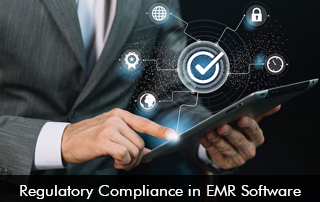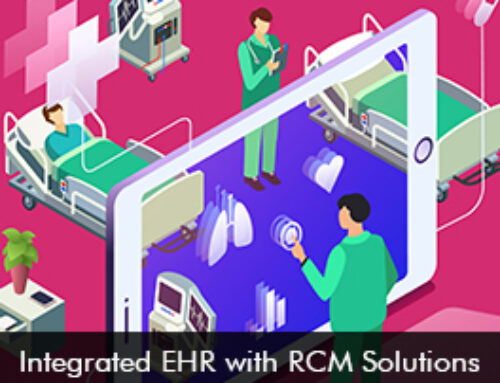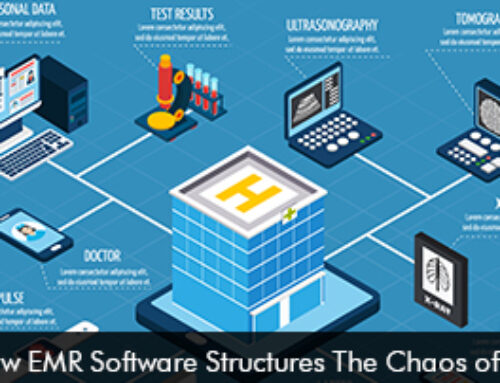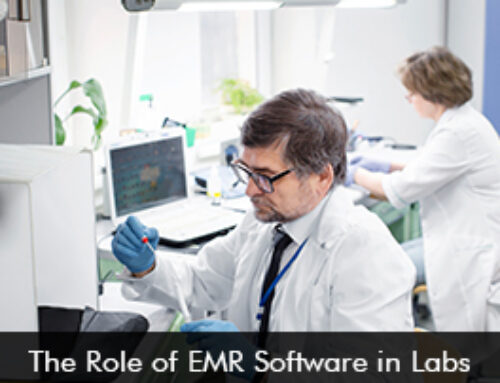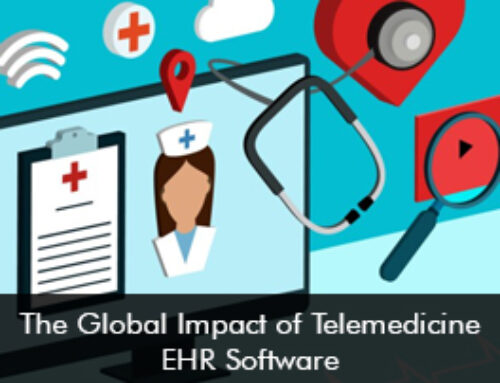Electronic Medical Records (EMR) Software systems have revolutionized the way healthcare organizations operate in terms of patient record keeping, sharing, patient care, and the optimization of workflows. As a healthcare provider, you want to ensure that the EHR Software vendor selected adheres to different laws, and regulations established by the government.
What is Regulatory Compliance in an EMR Software System?
The term “regulatory compliance” in Electronic Health Records (EHR) Software describes the program’s adherence to different laws, rules, guidelines, and standards set forth by governmental entities or trade associations that control how sensitive patient health information is used, handled, stored, and transmitted.
Key Aspects of Regulatory Compliance in EHR Software
EMR software developers and vendors need to upgrade and modify their systems frequently to comply with changing legal requirements. There may be legal repercussions, data breaches, loss of confidence, and reputational harm if these regulations are broken.
A top-ranked EMR Software will make meeting compliance requirements easy and meet the following compliance standards:
HIPAA-Compliance
The benchmark for safeguarding private patient information is established by the Health Insurance Portability and Accountability Act (HIPAA). To guarantee the security and privacy of patients’ electronically protected health information (ePHI), EMR systems must abide by HIPAA requirements.
Interoperability Standards
When interoperability standards are met by Electronic Health Records Software it means that the system can seamlessly exchange patient health information with other systems efficiently and securely. Interoperability standards lay the ground foundation for care coordination ultimately leading to high-quality patient care. Interoperability and data exchange are facilitated by standards such as HL7 and FHIR.
Data Security and Encryption
Strong security features are required for EMR software to shield patient data from hacker attacks, illegal access, and breaches. Data backups, encryption, access controls, and routine security audits are crucial elements of compliance ensured by the software vendor.
Meaningful Use (MU)
When the EHR Software system is certified for Meaningful Use it implies that healthcare providers can receive incentives through Medicare and Medicaid programs in the USA.
The Importance of EMR Software to Meet Compliance Standards
For several reasons, Electronic Medical Records (EMR) software compliance with standards is essential. First and foremost, compliance guarantees that private patient data is protected from misuse, unauthorized access, and breaches. This strengthens the relationship between patients and healthcare providers by encouraging patient confidentiality, trust, and confidence in the providers’ ability to secure their data.
Also, compliance with rules such as HIPAA encourages legal adherence, lowering the possibility of significant fines, penalties, or legal actions as a result of noncompliance. Adhering to standards such as interoperability rules allows for easy data interchange between healthcare systems, hence improving care coordination and patient outcome levels.
EHR Software Vendors that Meet Compliance Standards
EMR systems must be thoroughly assessed by healthcare organizations to make sure they fulfill the compliance standards required to protect patient data and follow legal obligations.
To make your selection and assessment process simple we have jotted down the top 5 EHR Software vendors that adhere to all compliance standards to ensure the smooth and efficient running of the system:


